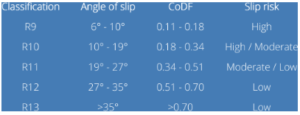General FAQs
What is Kebony?
Kebony is a highly durable, sustainable wood with the aesthetics and performance of the best tropical hardwood. It requires minimal maintenance with low life cycle costs.
What is the difference between Kebony and heat-treated woods?
Kebony technology is a combination of the infusion of a bio-based liquid and exposure to heat in the excess of 100°C, which permanently thickens up the cell wall of the wood. Heat-treated timber processes are purely high temperature treatments (170°C – 215°C), which does not alter the cell structure of the timber, but stiffens and makes the cell walls more brittle.
How is Kebony disposed of at the end of its life?
Kebony wood can be handled as ordinary wood. It can be recycled, repurposed, or burnt.
What applications can Kebony be used in?
Kebony can be used both indoors and outdoors in applications which include decking, cladding, flooring, roofing, windows, doors, furniture and design objects
Is Kebony easy to work with? (FAQs)
Kebony is much easier to work with than tropical hardwoods. Carbide tools should still be used but will last much longer.
Does Kebony come with a warranty? (FAQs)
Kebony offers a 30-year warranty against rot for above ground contact use.
Who sells Kebony?
See the Where to Buy section on our website or submit an online quote request.
How do I request samples of Kebony?
You can request a free sample online, send your inquiry to [email protected] or contact your nearest retailer.
How do I place an order?
You can submit an online quote request, send your purchase order to [email protected] or contact your nearest retailer.
Is Kebony dimensionally stable?
The Kebony process substantially improves the wood’s dimensional stability, typically by 50% compared to the original wood species. For example, Kebony Clear will swell tangentially by only 4% – better than almost all other woods.
What are the mechanical properties of Kebony?
The bending strength of Kebony is roughly unchanged from the parent wood, while the stiffness is improved by 10-20%. The hardness is typically improved by 30-50% over the parent wood. Complete specifications can be found in the relevant product information sheet.
What are the physical properties of Kebony?
Kebony is a natural product. Our process alters the wood fibers’ ability to hold moisture as a result of cell modification. Kebony has lower moisture content than untreated wood when it is in equilibrium with its surrounding climate. This effect is caused by the formation of the polymer inside the wood fibers. The process also reduces the shrinking and swelling of Kebony compared to the parent wood by 50%. The dimensional stability at moisture variations is therefore vastly improved.
Is Kebony maintenance free?
Kebony wood does not require any special maintenance beyond normal cleaning.
Is Kebony certified?
Kebony is produced from FSC®-certified woods.
How does Kebony machine?
Kebony is about as hard as domestic hard Maple. Consequently, Kebony should be machined at slower feed rates using carbide-tipped knives.
What is Kebony’s carbon footprint compared to other tropical hardwoods?
Kebony has a substantially lower carbon footprint than most tropical hardwoods.
Is Kebony available in different colors?
Kebony wood is delivered in a dark brown color as a result of the Kebony technology. The shade of brown does vary slightly depending on the wood species. If left exposed to the elements, all Kebony woods will develop a silver patina over time.
Technical FAQs
Can Kebony be ripped and/or crosscut?
Kebony Clear can be both ripped and crosscut. We recommend using high quality carbide blades that are suitable for tropical hardwoods.
Kebony Character can only be crosscut and should not be ripped as it will expose untreated heartwood. We recommend using high quality carbide blades that are suitable for tropical hardwoods.
Do I need to seal the wood after cutting and/or ripping?
End-sealing is not mandatory for Kebony Clear, but in order to limit variations in moisture in the end grain, a water-repellent end grain sealer will reduce the potential for splitting.
Kebony Character crosscuts must be sealed using an anti-parasite/fungal agent. Follow the manufacturer’s instructions.
What is the Solar Reflectance Index (SRI) of Kebony Clear?
The SRI values under Low, Medium, and High intensity are respectively, 49.1, 49.3, and 49.4
What is the Slip Resistance of Kebony?
There is no one recognized standard test for slip resistance. Kebony has performed several different tests in an effort to illustrate performance in different conditions.
DIN 51097
DIN 51097 ramp testing is a pedestrian slip test method utilizing soapy water and bare feet.
The outcome of this test was a rating of Group A.

DIN 51130
DIN 51130 ramp testing is a pedestrian slip test method utilizing motor oil and cleated safety boots.
The outcome of this test was an R11.

Fastener Location
Kebony Clear requires predrilling. Position the screws at least 20 mm from the side of the board and at least 25 mm from its end. Do not screw the screw in too deeply; the top of the screwhead should be flush with the surface of the board.
What fasteners should I use with Kebony products?
Fastenings in contact with the timber must be made from acid-proof (A4) or stainless (A2) steel. A4 is generally recommended and must always be used in coastal areas and chloride environments; A2 must only be used is less corrosive environments. Screws of a different quality or use of A2 in the wrong environment may result in dark discolouration around the screwholes.
How much does Kebony Clear decking weigh?
The density of Kebony Clear is approximately 41.8 lb/ft3 or 670 kg/m3.
How hard is Kebony Clear decking?
Kebony Clear’s Janka hardness is 1619 lbf.
What is covered under warranty?
You can see the complete warranty here.
How do I clean my Kebony? (FAQs)
Water and a brush with only garden hose pressure. Do not use a pressure washer.



